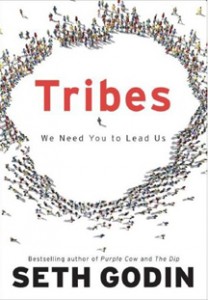I’ve been enjoying our book discussion lunches here at LifeWay. Our fourth meeting took place earlier this month with Michael Kelley, Philip Nation, and Russ Rankin. Here’s what we discussed:
 The Reason for God:
The Reason for God:
Belief in an Age of Skepticism
Tim Keller
Riverhead, 2008
Michael Kelley started off our discussion with Tim Keller’s bestseller, The Reason for God. Since all of us at the table had read this book, it was easy for us to launch directly into the discussion.
One topic of conversation: Should The Reason for God be compared to C.S. Lewis’ Mere Christianity? The consensus was that a comparison is certainly warranted. Both Keller and Lewis adopt a tone that is respectful and engaging.
But The Reason for God takes a different approach in its argumentation. The first half of the book features Keller turning the tables, putting the burden of proof on the skeptic rather than the believer. Many of his arguments are not “slam-dunk” and airtight, but they put a pebble in the skeptic’s shoe.
We all agreed that Mere Christianity isn’t nearly as accessible as The Reason for God, partly because it wasn’t Lewis’ intention to write for an audience as broad as Keller’s. Also interesting to note: Lewis uses the moral argument for his defense of theism, whereas Keller takes a multifaceted approach.
In the past, apologetic arguments focused on evidence. Take Josh McDowell, for example. Evidence that Demands a Verdict works well as long as monotheism is assumed. Certain “for granted” assumptions undergird these types of books. Keller, on the other hand, doesn’t take these assumptions for granted. He is like Solomon among the postmoderns, providing space for people to consider the claims of Christ.
 No Other Gospel:
No Other Gospel:
31 Reasons from Galatians Why Justification by Faith Alone Is the Only Gospel
Josh Moody
Crossway, 2011
I brought a new book from Josh Moody (pastor at College Church in Wheaton) called No Other Gospel. (Full disclosure: I endorsed the book.)
The book features 31 sermons based on Paul’s letter to the Galatians. If you’re like me, “sermons turned into books” aren’t typically at the top of your “to buy” list. But Moody keeps these messages highly accessible. I recommended that readers let Moody guide them daily through Galatians for a month.
The subtitle of the book, “Why Justification By Faith Alone is the Only Gospel,” rubbed some of our group the wrong way. If the subtitle means “you miss the biblical gospel if you deny the truth of justification by faith alone”, then we all agreed it’s right on target. But if we are making the doctrine of justification synonymous with “the gospel,” then we are no longer using the term “gospel” in the way the New Testament does. Nowhere is justification equated with the gospel, even if that assumption is supported by some in Reformed circles.
Leaving aside the debate over the subtitle, I recommended the book as a highly pastoral resource. It will be valuable to pastors and church leaders as they consider the relationship between law and gospel, freedom and legalism, and man-centered versus God-centered theology.
 Tribes:
Tribes:
We Need You to Lead Us
Seth Godin
Philip Nation brought Seth Godin’s popular book, Tribes. We all marveled at the breadth of Godin’s influence, particularly among some segments of evangelicalism (when we’re pretty sure Godin isn’t even a theist!). Needless to say, Godin is always provocative, and when it comes to leadership, he is right more often than wrong.
Tribes is part of the pendulum swing toward an “everyone-can-be-a-leader” culture. What used to be a top down “we all need a general” approach has now become decentralized.
There are aspects of Godin’s work that fit well within a Christian framework, particularly his emphasis on “serving the tribe” – not merely working for personal gain. And yet, Philip thinks the proposition that everyone can be a leader is ultimately self-defeating. Once everyone is authoritative and superior, no one is. So, ironically, the leadership boom may lead to a dearth of leadership.
In Godin’s utopian vision of human work, the principles of the organization are the driving force. The reality, though, is that people with voices and influence are the driving force.
Feel free to add your thoughts to our discussion of these three important books!


















